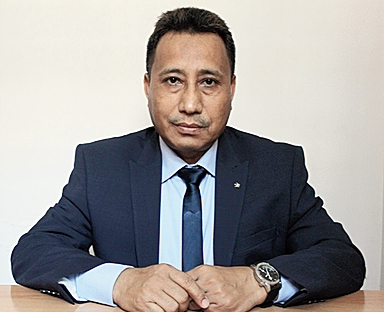Prime Minister Narendra Modi’s self-reliance pitch of being “vocal for local” products to come out of the Covid-19-induced economic turmoil has left the Northeast’s leading industry body vindicated and excited.
On May 11, just the day before Modi made his announcement on Tuesday, the Federation of Industry and Commerce of North Eastern Region (Finer) had similarly pitched for encouraging and attracting home-bred entrepreneurs/industrialists at an interaction that Assam chief minister had with representatives of public sector units (PSUs), industry and tea associations here on how to revive the Covid-hit economy.
Finer president Pabitra Buragohain told The Telegraph that Dispur should immediately conduct a survey of the products imported by Assam, examine which ones can be manufactured locally and then go all out to support “only sustainable local industries/enterprises” because some products will have to be imported “no matter how much we try because of issues related to logistics, raw material and expertise”.
Finer has 320 members from the region, mostly from Assam.
“Covid is teaching us to become self-reliant. We felt vindicated when our Prime Minister too pitched for self-reliance. Local industries are overlooked at times but we hope things will change for the better so that we can become self-reliant,” Buragohain, who runs the Northeast’s leading ISO-certified textiles firm dealing in cotton and silk yarn, said.
“In our interaction with the chief minister, we said we need to professionalise our agri, handloom, fishery, poultry, food processing, bamboo-based and tourism sectors. These are sectors where we have the expertise, climate and raw material to thrive economically. A little bit of initial handholding is required to negotiate the early bumps because most in the Northeast, like me, are first generation entrepreneurs,” he said.
Urging Dispur to expedite goods and services tax (GST) refund, pending bills, waiver of fixed electricity cost to save existing industries and businesses, Buragohain listed a few sectors where the state could become self-reliant.
On agriculture, he said, “Everybody talks about agriculture and allied activities being important but we need to treat and run it as an industry. To achieve this, we need to get the educated unemployed into the agri sector because they can scale up operations. All government schemes and help should be extended to them.”
On handloom, he said, “The Northeast is blessed with skills to thrive in the handloom sector. Annually, about Rs 25,000 crore is spent on clothes and garments in the Northeast while local manufacturers sell products of about Rs 5,000 crore. The government needs to support our women weavers and create a market promoting the use of handloom products such as bedsheets and curtains in offices, hospitals and hotels as well as school uniforms. Initially, it should focus on handloom clusters such as Dhemaji, Kokrajhar, Sualkuchi and Karbi Anglong. Our tribal people are blessed with amazing weaving skills.”
On fishery, poultry and piggery, he said, “The government should encourage this sector because they are sustaining us during the lockdown when import is nil. The government should provide land, apart from other incentives, to attract the local educated youths. The fishery market is of about Rs 6,500 crore annually.”











